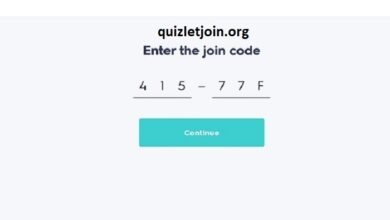Eye-Opening Polyatomic Ions Quizlet Secrets Revealed

Polyatomic ions are essential in chemistry, and understanding them can really help you in your studies. Whether you’re learning about them in school or just curious about how they work, this guide will make things clear. Let’s break it down in a simple and fun way!
What is Polyatomic Ions Quizlet and How Does It Work?
Polyatomic ions are ions made up of two or more atoms that are charged. Think of them like tiny chemical teams working together to carry a charge! Some common polyatomic ions include nitrate (NO₃⁻) and sulfate (SO₄²⁻).
Real-Life Example
Imagine a group of friends going to a movie. The group (polyatomic ion) moves together as one unit. If one of the friends has a snack (charge), the whole group has that snack. This is similar to how polyatomic ions work in chemistry!
Why Polyatomic Ions Quizlet is the Best Choice for Students?
Polyatomic Ions Quizlet is the perfect tool for students who want to understand and practice polyatomic ions. Here’s why it’s such a great choice:
- Interactive Learning: Quizlet offers flashcards and games to make learning fun.
- Real-Time Practice: With its easy-to-use interface, you can quiz yourself anytime and anywhere!
- Helps with Memorization: The repetition and quizzes help you remember these tricky ions faster.
Statistics:
- Studies show that interactive learning tools like Quizlet help improve retention by 30% compared to traditional studying methods.
Step-by-Step Guide to Get Started with Polyatomic Ions Quizlet
Getting started with Polyatomic Ions Quizlet is easy! Just follow these simple steps:
Step 1: Create an Account
Go to Quizlet’s website or app, and sign up for a free account. This allows you to save your progress and access all the learning tools.
Step 2: Search for Polyatomic Ions
Search for “polyatomic ions” in the Quizlet search bar. You’ll find pre-made sets created by other users that you can start practicing with right away!
Step 3: Practice with Flashcards and Quizzes
Start by reviewing flashcards. Once you’re familiar with the ions, try quizzes to test your knowledge. Don’t worry if you don’t get it perfect on the first try—practice makes perfect!
Best Strategies to Succeed in Polyatomic Ions Quizlet in 2025-26
If you want to be a polyatomic ions pro, here are some strategies to help you succeed:
- Use Spaced Repetition: Quizlet offers a feature that repeats questions based on how well you remember them. Use this to ensure you’re studying efficiently!
- Group Study Sessions: Get together with classmates and quiz each other. It’s a fun way to stay motivated!
- Set Goals: Challenge yourself to master a specific number of ions per day or week.
Latest Trend: In 2025-26, more students are turning to interactive platforms like Quizlet for real-time feedback and personalized learning, which makes mastering complex topics like polyatomic ions even easier.
Common Mistakes and How to Avoid Them
Studying polyatomic ions can be tricky, but here are some common mistakes and how to avoid them:
Mistake 1: Mixing up similar ions (e.g., nitrate NO₃⁻ vs. nitrite NO₂⁻). Solution: Practice with flashcards and focus on their unique characteristics.
Mistake 2: Not understanding the charge of the ion. Solution: Learn the rules behind how the charges work, and keep a reference chart handy.
Mistake 3: Relying only on memorization. Solution: Understand the patterns in polyatomic ions, such as how adding oxygen can change the charge.
FAQs
What are polyatomic ions? Polyatomic ions are ions made up of more than one atom, and they carry a charge.
How do I study polyatomic ions effectively? Use Quizlet to practice flashcards and quizzes. Group study and setting goals also help!
Why should I use Quizlet for polyatomic ions? Quizlet is interactive and helps reinforce your learning with quizzes, flashcards, and games.
Conclusion
Understanding polyatomic ions Quizlet doesn’t have to be hard! With the right tools, like Quizlet, and the right strategies, you can ace your chemistry studies in no time. So, get started today and practice regularly!





